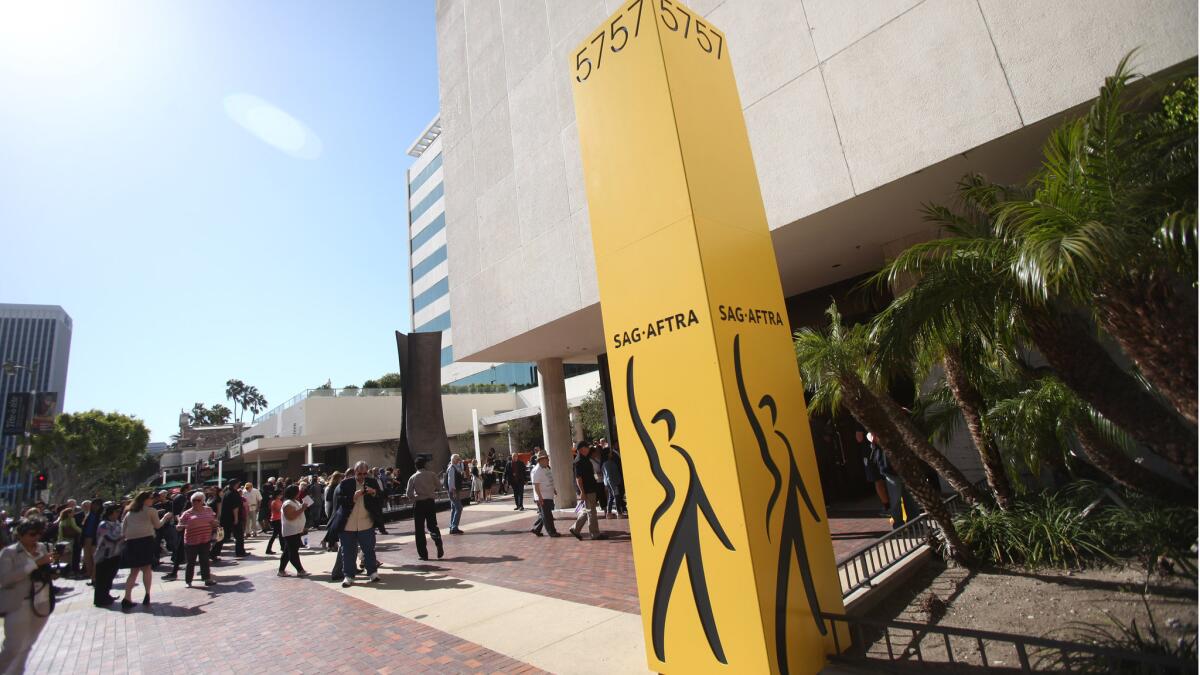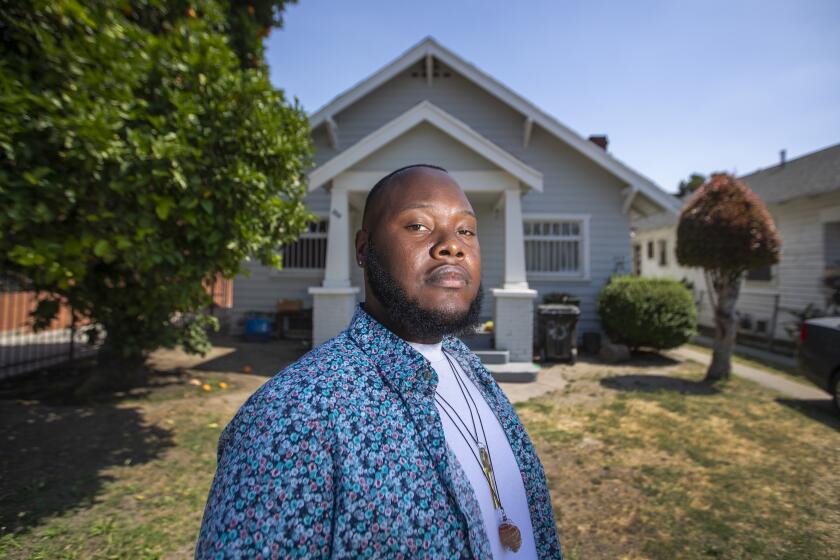Unions call for greater federal aid for thousands unemployed in Hollywood

- Share via
A coalition of industry arts and entertainment unions and organizations, including SAG-AFTRA, backed a bill to remedy a flaw in previous COVID-19 relief that excluded many industry workers.
The Mixed Earner Unemployment Assistance Act of 2020, introduced by U.S. Reps. Adam Schiff (D-Burbank) and Judy Chu (D-Monterey Park), would end an exclusion that prevented many Hollywood workers from qualifying for federal pandemic relief packages, such as the CARES Act.
Many in the entertainment industry earn a mix of wages as employees for productions such as TV shows, as well as income as self-employed creators, gig workers or local musicians. These so-called mixed-earners typically may not earn enough as a W-2-employee to qualify for any state unemployment benefits. The result is that some are losing thousands of dollars in benefits, the group said.
Hundreds of thousands of workers in entertainment and the arts nationally have reported lower hours or loss of work as a result of the health crisis. The coronavirus outbreak in March led to a complete shutdown of film and television production across the country, as well as live theater and music performances and recordings.
The aid comes as Hollywood attempts to start film production, although most of the activity has been limited to smaller crews, with a few popular TV shows like “The Bold and the Beautiful” filming on sound stages. Meeting the safety requirements for filming has created a financial and operational challenge for productions.
Virus testing and other challenges are complicating efforts to resume production four months after the COVID-19 pandemic halted film and TV shoots.
“Our bill will ensure that mixed earners are no longer excluded from this critical assistance because of the nature of their employment and income,” Schiff said in a statement.
Under this new legislation, a so-called mixed earner who gained at least $7,250 from self-employment in 2019 could amend their application to qualify for the pandemic relief program. Federal stimulus payments totaling $600 a week end July 25.
SAG-AFTRA President Gabrielle Carteris said the bill “corrects an unintended flaw in the CARES Act that resulted in affected performers receiving a fraction of the weekly benefits they are owed as taxpayers.”
Workers impacted by the pandemic have received a total of $45.6 billion in unemployment benefits over the last four months, double the amount paid out in 2010, the worst year following the previous financial crisis, the California Employment Development Department said last week.
Our special-edition newsletter breaks down the latest coronavirus news, including how the pandemic is worsening the unemployment numbers for Black workers.
The Authors Guild said its members had lost on average 43% of their regular income since the start of the crisis. The Freelancers union said over 80% of its members were reporting loss of income and work opportunities because of the crisis, and are depending on government relief in record numbers.
An annual PwC report on the podcast industry projects that ad revenues will increase nearly 15% in 2020, piercing $1 billion, versus a pre-pandemic forecast of 29.6%.
The bill was also supported by the Department for Professional Employees AFL-CIO, Future of Music Coalition, Lawyers for the Creative Arts in Chicago, Music Artists Coalition, the Recording Academy, the Recording Industry Assn. of America and the Songwriters of North America.
More to Read
Inside the business of entertainment
The Wide Shot brings you news, analysis and insights on everything from streaming wars to production — and what it all means for the future.
You may occasionally receive promotional content from the Los Angeles Times.













